Yours in the Struggle,
The Reckoning Is Here!
- July 13, 2022
- NMAC
- Blog, Ending the Epidemic
- Comments are Closed
Yours in the Struggle,
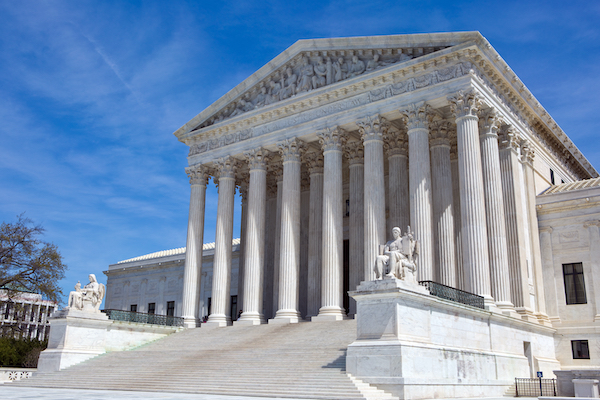
|
Yours in the Struggle,
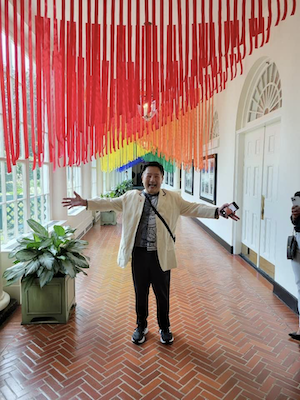 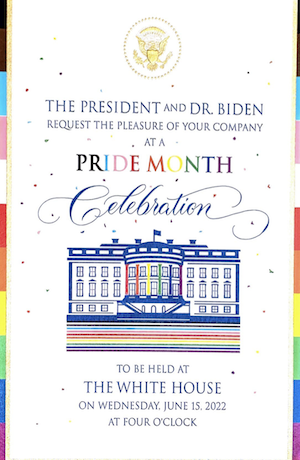
|
Yours in the Struggle,
Paul Kawata & my new best friend,
White House Press Secretary Karine Jean-Pierre Worth
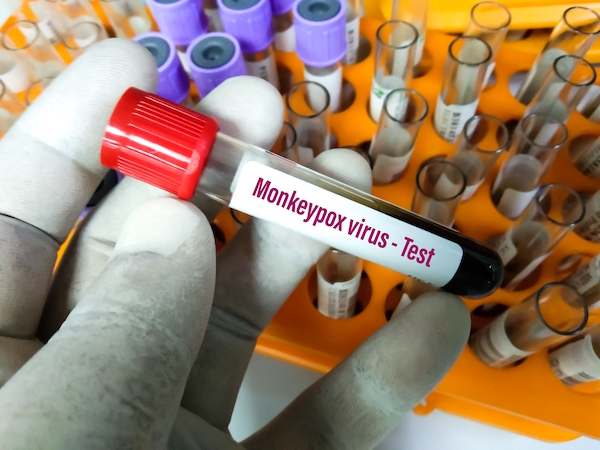
|
Yours in the Struggle,
Paul Kawata
NMAC
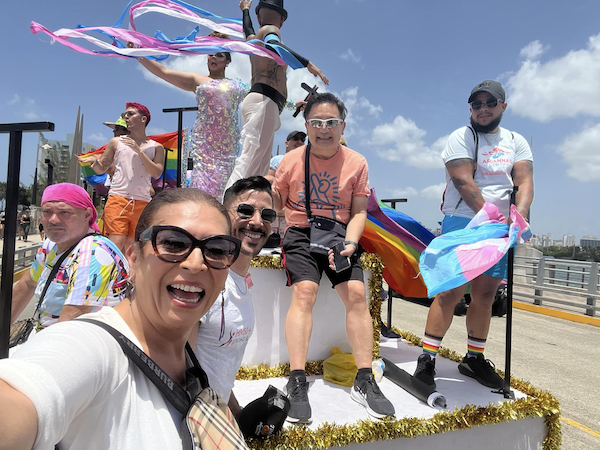
The plane broke into spontaneous applause as we safely landed in Puerto Rico. I’d forgotten about this sweet custom and was reminded why I love the islands. Some folks think the applause is a thank you to the gods for arriving safely, others believe it is gratitude for being home with their people. I’m in San Juan to celebrate Pride and hold a board meeting/site visit for the 2022 United States Conference on HIV/AIDS.
Leadership means showing up for the communities hardest hit by HIV. Congratulations and thank you to everyone working to hold Pride events in-person. The world is an awful place and it’s easy to be overwhelmed and depressed. Public events are not for everyone. There are real risks for getting COVID or Monkeypox. As we learned from our safer sex days, abstinence from the world is the only sure way to be 100% safe. COVID showed me the challenges of being alone. I need to be in the world, traveling and experiencing life. That’s why I was so grateful for San Juan’s Pride.
The 2022 meeting has the largest pre-registration in history. Two hotels are already sold-out. Only 30% of the exhibit space is still available. People are ready for an in-person meeting. Our COVID protocols are stricter than Chicago. Everyone will be required to have initial vaccines and at least one booster. The meeting will also follow all local ordinances. Masking will be encouraged and celebrated. Rapid tests will be available for free for attendees. However, there are no guarantees. Of the 1,033 attendees at this year’s Biomedical HIV Prevention Summit, four people let us know they got COVID after the meeting. We’ve also had two people test positive at two different regional trainings (one per training). No one was seriously ill or went to the hospital. As a health organization that works with people who are immune compromised, we feel a duty to inform. As a gay man of color living in America, I understand risk. There is no one right answer for everyone. I hope you will join us this year, but completely understand if it is too soon. The world is crazy and that makes Pride even more important. I reject being labeled a groomer. It’s just the Right’s dog whistle for pedophiles. Make no mistake, they are coming after all of us. I stand with Pride, not only for my own mental health, but also as a “fuck you” to all who would deny my humanity. We are headed for war because nobody wants to go back into the closet. There need to be a NATO pact between the oppressed. When they go after abortion, Black Lives, immigration, Asian Lives, climate change, Trans Lives, limits on guns, and the LGBTQ community, we must stand together in our outrage. |
Yours in the Struggle,
Paul Kawata
NMAC
|
Yours in the Struggle,
Paul Kawata
NMAC
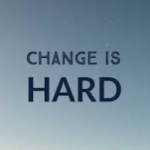 Change is hard. It requires great effort and lots of anxiety. Many White-led HIV and LGBTQ agencies recently hired their first person of color to lead the nonprofit. I’m very proud because so many have fought for so long for this representation. At the same time, I worry for our new colleagues’ success. Will these leaders be judged by a different standard? The unfortunate reality is “yes.” Change is hard. It requires great effort and lots of anxiety. Many White-led HIV and LGBTQ agencies recently hired their first person of color to lead the nonprofit. I’m very proud because so many have fought for so long for this representation. At the same time, I worry for our new colleagues’ success. Will these leaders be judged by a different standard? The unfortunate reality is “yes.”
There are no playbooks for how to be the first leader of color of a mostly White agency. I know, because I was the first person of color in too many rooms during the early days of the epidemic. Suki Ports and I would joke that we were a caucus of two at most HIV conferences. Back then, leaders of color started their own agencies because they did not see their reflection in the boards or staffs of AIDS service organizations and/or health departments. The inequity became a flashpoint. It’s taken decades but change is happening. How should our movement support leaders of color? I talk about race because of its impact on leadership. Our movement needs to fund leadership development for people of color not because it is politically correct, but because it is the right solution. It is not easy to manage white people. I am still amazed at White fragility. Also, too many people of color living with HIV have fallen out of care. Too few people of color benefit from PrEP. I’m not saying throw the baby out with the bath water because there is lots of good. I’m just asking for leadership development to support people of color in key management roles in the organizations working to end the HIV epidemic.
Our community is so quick to judge when someone makes a mistake. As an executive director who has made many mistakes, I appreciate that my board understands the challenges of leading while colored and who understands that people are going to get mad because I lead with race and call out White privilege. It is a very difficult line that leaders of color must walk, particularly when they are new. Many are accused of overusing racism as an excuse but, once again, we all live in different worlds with very different realities. As a person who walks in both, some of you are not as “woke” as you think. It takes work to understand, work that too many are not willing to do.
As a highly educated individual, I think educational requirements for employment are bogus, particularly in the HIV field. Our work requires staff to know communities that you can’t learn about in textbooks. Sometimes lived experience is more important than a BA. It’s time to value community. Another reason I talk about race is that our work is missing too many. Systems led by community need to be supported and valued. Professional standards are not necessarily community standards. Existing systems retain 49% of all people living with HIV in care, but they do not reach everyone needed to end the epidemic. Once again, we need to keep the good and use new funding to figure out ways to reach those who have fallen out or are not reached by existing systems. It is time to expand our business model to include the urban market. My plea is not only to hire people of color, but to also give them the support and resources needed to succeed. Things you take for granted may not be their reality and vice versa. Too many executives of color have experienced horror stories of donors that are friends to the movement but less than understanding on race or gender identity. Unless you’ve been there, it’s almost impossible to appreciate the trauma these meetings create, having to smile while a person with wealth says, “you’re one of the good people of color.” This really does happen. I have too many stories and too many names of donors who just don’t get it.
|
Yours in the Struggle,
Paul Kawata
NMAC
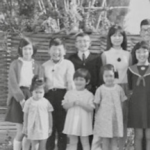 I am an old Asian Queen who has spent decades writing about my experiences surviving an epidemic. My musings try to be clever and hopefully funny because the topics are serious and sometimes depressing. Each week I write to thousands about our movement’s work to end the HIV epidemic in America, leaning into the tough issues like racism, homophobia, transphobia, and sexism. Frequently, I talk about my challenges with depression, especially PTSD from surviving the early days. Like too many in our work, I’ve lost more friends than I can remember. I stay in the fight to honor their lives. Regular readers know I don’t care very much about spelling or grammar. Too much attention is paid to the skills and not enough to the essence of what is being said. I always look for the kernel of truth, the writer’s willingness to be vulnerable. I am an old Asian Queen who has spent decades writing about my experiences surviving an epidemic. My musings try to be clever and hopefully funny because the topics are serious and sometimes depressing. Each week I write to thousands about our movement’s work to end the HIV epidemic in America, leaning into the tough issues like racism, homophobia, transphobia, and sexism. Frequently, I talk about my challenges with depression, especially PTSD from surviving the early days. Like too many in our work, I’ve lost more friends than I can remember. I stay in the fight to honor their lives. Regular readers know I don’t care very much about spelling or grammar. Too much attention is paid to the skills and not enough to the essence of what is being said. I always look for the kernel of truth, the writer’s willingness to be vulnerable.
I’m telling stories because May 19th is National Asian and Pacific Islander HIV/AIDS Awareness Day. Sharing my life is how I celebrate my heritage. Like many Japanese Americans who came of age after World War II, my early years were spent fighting racial stereotypes and expectations. Sadly, I still get “ching-chonged.” That’s what I call racist statements made by uneducated people who suffer from the illusion that their America is my America. White privilege is alive and not well in our work.
When I turned 12, I was sent to the fields to pick strawberries. We got 25 cents per flat (that was 24 boxes). It was long days and back breaking work, but don’t feel sorry for me. I got to keep the money. Back then it was the Japanese American version of summer camp. No one in my circle of friends could afford to pay to go to camp, but we could all catch the bus together to pick berries. Our mothers would pack our lunch and see us off at the stop. It did not seem unusual because I was with all my friends. I started going to gay bars when I turned 16. I’m still amazed I wasn’t carded, but I did have a mustache. Back then most gay bars were on back streets, usually via alleys, places that no self-respecting Japanese man-child should go, and I loved it. Going to bars and meeting men felt exotic and grown up. I can still hear the thump thump beat of disco music. Donna Summer (back when we still loved her) wailing “Love To Love You Baby.” Coming to terms with being gay helped me to understand that I did not have to live the life my parents expected. I did not have to be the good Asian boy. In the hierarchy of desire among gay men, Asian men have our “rice queens,” older White men who are trying to relive their youth during World War II. They desire the Geisha experience and prey mostly upon foreign born Asian men. I’ve disappointed too many rice queens with my big mouth and certainty.
|
Yours in the Struggle,
Paul Kawata
NMAC
After three years, USCHA returns in person! And what better place to celebrate it than in Puerto Rico, the Island of Enchantment.
Among the many things the conference has to offer, and following NMAC’s work on HIV and aging, USCHA will feature a pathway focused solely on these issues. In addition, 50+ folks will have a lounge just for them. A space where they can go to chill, have fun and decompress as they network with peers. Here are some of the experiences and learnings from the last USCHA from our 50+ members:
Looking ahead to USCHA 2022 in Puerto Rico
By Joey Pons
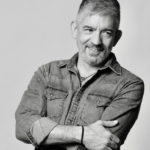 The opportunity to learn about co-morbidities, mental health issues and well-being of older adults living with HIV was enriching and nourishing for me. To be able to network and share experiences, albeit virtually, was wonderful for all of us living and working with this population. There is no question USCHA is the most comprehensive forum for HIV knowledge in community for all of us people of color living and being affected by HIV. This year, USCHA will be held in-person, and I am very excited it will be in my homeland, Puerto Rico.
The opportunity to learn about co-morbidities, mental health issues and well-being of older adults living with HIV was enriching and nourishing for me. To be able to network and share experiences, albeit virtually, was wonderful for all of us living and working with this population. There is no question USCHA is the most comprehensive forum for HIV knowledge in community for all of us people of color living and being affected by HIV. This year, USCHA will be held in-person, and I am very excited it will be in my homeland, Puerto Rico.
USCHA 2021: Informativa, útil e inclusiva
Por Silvia Silverio
 Aunque virtualmente, durante USCHA pude ver e interactuar con otros líderes comunitarios, entre ellos miembros del programa “50+ VIH Fuerte y Saludable”. El tema más importante para mí fue el taller de “Envejeciendo con VIH” ya que tengo 53 años, de los cuales 35 he vivido con VIH. Aunque luzco joven y saludable creo que es importante aprender de las experiencias de los demás para seguir manteniéndome saludable y evitar enfermedades crónicas y comunes que vienen con la edad.
Aunque virtualmente, durante USCHA pude ver e interactuar con otros líderes comunitarios, entre ellos miembros del programa “50+ VIH Fuerte y Saludable”. El tema más importante para mí fue el taller de “Envejeciendo con VIH” ya que tengo 53 años, de los cuales 35 he vivido con VIH. Aunque luzco joven y saludable creo que es importante aprender de las experiencias de los demás para seguir manteniéndome saludable y evitar enfermedades crónicas y comunes que vienen con la edad.
Virtual vs. In-Person Conferences
By Jeffrey Long
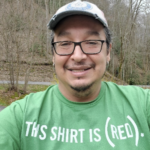 My experiences have been awesome with USCA/USCHA, and I’m looking forward to USCHA 2022 and hopefully attending the Biomedical HIV Prevention Summit in Chicago to bring information to clients and future clients on studies being done without Indigenous participation.
My experiences have been awesome with USCA/USCHA, and I’m looking forward to USCHA 2022 and hopefully attending the Biomedical HIV Prevention Summit in Chicago to bring information to clients and future clients on studies being done without Indigenous participation.
Big shout out and a huge Thank you, Sgi, in my native language.
Looking back at USCHA 2021
by Victoria Graves-Cade
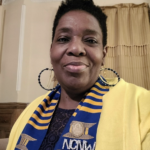 I was extremely moved by Linda Scruggs testimonial from an African American women’s perspective in this HIV journey and how HIV and Advocacy gave her a voice. So often in my HIV journey I felt voiceless because the message and images did not include people who look like me, which fueled my fear. […] This was a powerful and engaging virtual conference and I so look forward to learning more, working harder, and building bridges in person with people who are committed to Ending the HIV Epidemic.
I was extremely moved by Linda Scruggs testimonial from an African American women’s perspective in this HIV journey and how HIV and Advocacy gave her a voice. So often in my HIV journey I felt voiceless because the message and images did not include people who look like me, which fueled my fear. […] This was a powerful and engaging virtual conference and I so look forward to learning more, working harder, and building bridges in person with people who are committed to Ending the HIV Epidemic.
‘Co-existing’ with more than just HIV
by Rick Guasco
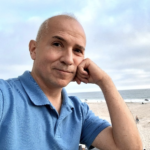 Treating HIV is about more than just treating the virus. As members of NMAC’s HIV 50+ Strong and Healthy cohort, we are empowered to advocate for a better quality of life for people aging with HIV and to press clinicians and care providers to consider all the conditions that come with living with HIV.
Treating HIV is about more than just treating the virus. As members of NMAC’s HIV 50+ Strong and Healthy cohort, we are empowered to advocate for a better quality of life for people aging with HIV and to press clinicians and care providers to consider all the conditions that come with living with HIV.
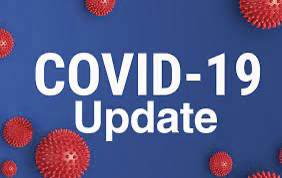 NMAC was very concerned about hosting an in-person event. Transparency and proof of vaccinations were key to this year’s summit. Our relationships are built on trust and the agency felt a responsibility to be open about the impact COVID had on the Summit. Here is what I know: the one person who asked for a COVID test wrote to say they were negative. In fact, they took the test in Chicago and upon their return home to confirm. Three (3) people tested positive. No one went to the hospital or passed. Symptoms included throat irritations, coughing, some lethargy, mild cold/flu symptoms. All three have isolated. They are conducting home tests with a negative PCR follow-up before they return to work. NMAC wishes them a speedy recovery and please keep us informed.
NMAC was very concerned about hosting an in-person event. Transparency and proof of vaccinations were key to this year’s summit. Our relationships are built on trust and the agency felt a responsibility to be open about the impact COVID had on the Summit. Here is what I know: the one person who asked for a COVID test wrote to say they were negative. In fact, they took the test in Chicago and upon their return home to confirm. Three (3) people tested positive. No one went to the hospital or passed. Symptoms included throat irritations, coughing, some lethargy, mild cold/flu symptoms. All three have isolated. They are conducting home tests with a negative PCR follow-up before they return to work. NMAC wishes them a speedy recovery and please keep us informed.
As with HIV testing, confidentiality is important. NMAC does not have the names of any of the individuals nor did we ask for any unique identifiers. We share this information to help the field understand the impact that COVID had on a large HIV meeting with 1,033 participants. These are very uncertain times and there is no playbook.
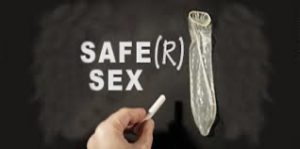 As we’ve learned with safer sex, only abstinence was 100% safe. For the rest of us, we had to look at the relative risk we were willing to take to both have sex and be safe. There are very real reasons to stay in a COVID bubble. As an old man living with cancer, I understand. After my fourth (4th) shot, I started to rethink my strategy. Like the early days of safer sex, each of us had to figure our personal level of comfort having different kinds of sex. Kissing was my line in the sand, for me it was an essential part of the experience and not something I was willing to give up. Way too much information from grandpa. COVID, like HIV, asks us to weigh the risk and understand the consequences.
As we’ve learned with safer sex, only abstinence was 100% safe. For the rest of us, we had to look at the relative risk we were willing to take to both have sex and be safe. There are very real reasons to stay in a COVID bubble. As an old man living with cancer, I understand. After my fourth (4th) shot, I started to rethink my strategy. Like the early days of safer sex, each of us had to figure our personal level of comfort having different kinds of sex. Kissing was my line in the sand, for me it was an essential part of the experience and not something I was willing to give up. Way too much information from grandpa. COVID, like HIV, asks us to weigh the risk and understand the consequences.
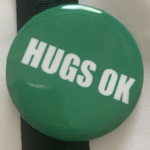 Beyond the physical, there are the psychological considerations. COVID created PTSD that we still don’t fully understand. Secretly, I judged and envied friends who jumped back quickly. Going to Chicago was my test. As an informal way to look at our movement, NMAC asked participants to wear a button with their level of comfort being hugged. Overwhelmingly, participants selected the hug button. In fact, the meeting quickly ran out of them. While not scientific, it shows how much people wanted to reconnect. To a person, everyone said they were glad we did not cancel.
Beyond the physical, there are the psychological considerations. COVID created PTSD that we still don’t fully understand. Secretly, I judged and envied friends who jumped back quickly. Going to Chicago was my test. As an informal way to look at our movement, NMAC asked participants to wear a button with their level of comfort being hugged. Overwhelmingly, participants selected the hug button. In fact, the meeting quickly ran out of them. While not scientific, it shows how much people wanted to reconnect. To a person, everyone said they were glad we did not cancel.
I’m publicly sharing NMAC’s experience because similar challenges face our movement. It might not be about conferences, but it is about getting back to normal. COVID changed the world and I don’t think we can go back to the way things were. Trusted voices were critical in COVID and they continue to play important roles in efforts to end the HIV epidemic. Over one thousand people came to Chicago because they trusted that NMAC would not put them in unnecessary danger. That trust is the result of over 30 years of leadership and collaboration.
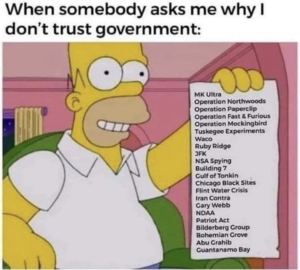 As we learned with vaccine hesitancy, many people do not trust the government, particularly people of color. As we work to figure out solutions for ending the epidemic, the government needs to be more transparent. COVID exposed many problems with the status quo that will hopefully get fixed before the next virus. We will never end the HIV epidemic if we continue with that same status quo. NMAC challenges our federal colleagues to use what was learned under COVID and apply it to HIV. When I talk about not being able to go back to the way things were, that includes our fight to end HIV. Nobody wants to go back to 35,000 new cases a year where 49% of the people living with HIV are not retained in medical care.
As we learned with vaccine hesitancy, many people do not trust the government, particularly people of color. As we work to figure out solutions for ending the epidemic, the government needs to be more transparent. COVID exposed many problems with the status quo that will hopefully get fixed before the next virus. We will never end the HIV epidemic if we continue with that same status quo. NMAC challenges our federal colleagues to use what was learned under COVID and apply it to HIV. When I talk about not being able to go back to the way things were, that includes our fight to end HIV. Nobody wants to go back to 35,000 new cases a year where 49% of the people living with HIV are not retained in medical care.
Because people were stuck at home, I got many more readers. While I appreciate everyone’s kind words, Chicago opened my eyes to my responsibility. NMAC’s platform reaches thousands of readers on a weekly basis. I never take that for granted and work to keep our movement informed. Ending the epidemic will not happen by magic. We need to fight to bring the promise of PrEP and U=U to all the communities highly impacted by HIV. Hopefully, I will see you in Puerto Rico!
Yours in the Struggle,
Paul Kawata
NMAC